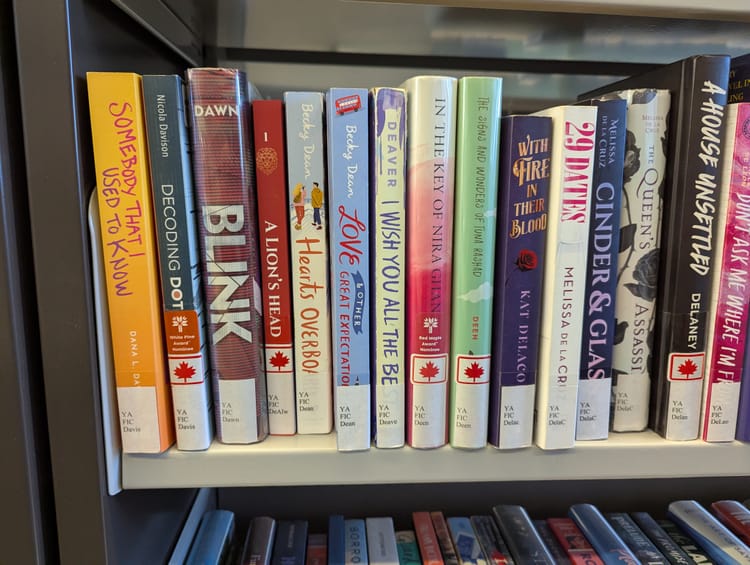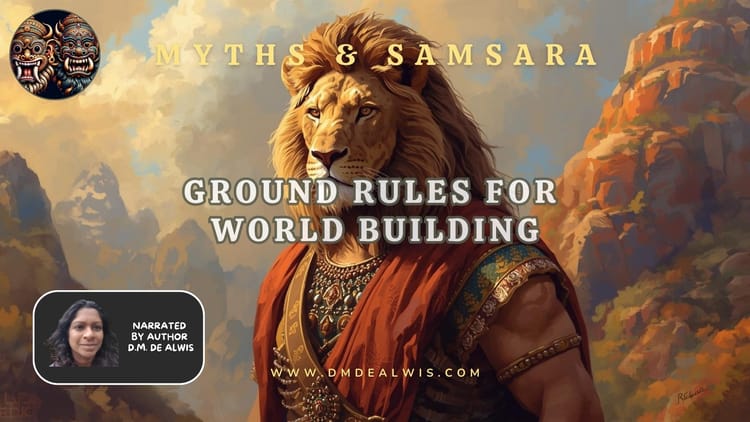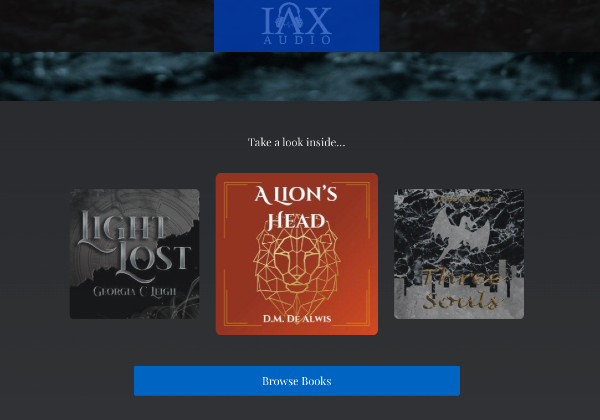Editor Feedback—Is it Racism or Inexperience?


I've responded to several threads on editor comments that have been seen as 'racist'. Some I responded to in person.
- Example A: " The editor wanted me to cut out the part where the main character had her eyebrows threaded."
- Example B: "The editor said the characters' names sound too familiar and I should change them, though they follow my cultural naming convention, which uses the same prefix."
- Example C: "Why don't you use 'Mother', why do you have to use 'Amma'?"
Ironically, that last one came from someone from Sri Lanka, who was concerned that people might not realize 'Amma' means 'mother'.
I left it in. More cultures refer to their mothers as Amma, as I've discovered—and it helps sell more books.
I'd like to believe that people aren't inherently racist. Put me in a room full of people who are culturally different than me and I'll have a hard time fitting in or understanding context and nuance around their behaviour.
I'll use the Irish in this example. Everyone from Ireland will say, "How are you?" but none of them will ever expect a response other than "How are you?" back. So when my Canadian self responds with a "I'm fine, and how are you?" or "My day is going terrible, let me tell you the ways..." my Irish peers recoiled in horror. Were they being racist, or was I being ignorant of their customs?
I'm slow to recognize or react when someone's being racist.
I have a very high bar. To the woman at St. Jacob's Farmers' Market who asked me if they grew grapes in my country, I replied, "Yes," and walked away.
To the friend who moved north on account of not finding 'children at my kid's school who were culturally the same as her (white) kids, ' I had to ask a friend for their opinion. She was being racist, but utterly unaware of it.
Being a visible minority, I've heard someone guffaw about something racist and cover their mouth in shock when they realized that not everyone around them was white.
At the same time, I've heard and seen just about all the racism that comes out of people of South and Eastern Asian descent. We're racist towards our own, see Example C above.
So let me get to the point of this article: how does this show up when receiving feedback on writing?
You must start by asking yourself, is it racism or a lack of experience?
The problem
In the grand majority of incidences of, 'wait, was that racist?' it boils down to inexperience. That person doesn't understand or know the nuance and context.
The solution
PUSH BACK on your editor and give them the context or nuance. So far, in 100% of my experiences, it leads to a discussion in which I either add more context above or below the instance OR remove the confusion altogether.
A good editor will be thoughtful about how they word their feedback. However, editors are human, and the stream of consciousness is the style in which most commentary falls.
Example A
The reason the characters were getting their eyebrows threaded is that this is a culturally significant instance where mothers and daughters would be in the same room and potentially spurred to talk by having to sit there. It's akin to getting a pedicure, except it can be painful. So we talk through it... because that helps relieve the pain.
The result
Perhaps you, as the author, discover that the editor has never had the experience of threading their eyebrows, or they've never gone in socially to get their eyebrows threaded as a group of women.
The context was missing. The editor, acting as a reader, is relating what confuses them in your writing. Now that they understand the context, they might understand why it was included and be able to offer other solutions to resolving their confusion.
"If I'd only known more about the need to talk through a painful experience..."
As the author, you need to consider your future audience. What your editor is saying is, "here's a red flag".
I'd ask myself: How can I change the setting or context to make it more evident to the novice reader what's going on, without boring the reader who already understands it?
There's the actual challenge, right there.
Example B
"The editor said the characters' names sound too familiar and I should change them, though they follow my cultural naming convention, which uses the same prefix."
I received the same criticism for my current work, which is in Example B. I named two characters Anura and Anuradha. I shared the chapter with people from different cultures, including Indians. The feedback across the board was that the two names were too similar when read on the page. I changed the names to Anura and Radha only for my Indian sensitivity reader to ask that I not use a name from the Ramayana, especially given the timeline's proximity to the history of the epic.
I could roll my eyes and ignore the feedback.
But I'm sensitive to the religious undertones or overtones in my work, so the names became Anu and Tara. I may still change their names back or rename them altogether before the book is finished.
The point is, I wasn't so fixated on their names. It wasn't crucial to the plot that they hold to these names.
And that's the next question a writer must ask themself.
How relevant is this nuance to the plot, setting, or character development?
In the case of my friend, whose naming convention was crucial to character development and setting, it's her job to figure out how to explain it and then make it easier for the reader to follow those names.
Sri Lankan names are ridiculously long at times, so you'll find people call each other by nicknames or short forms. I'm pretty sure there's a workaround in my friend's culture as well.
I'm pretty sure that unfamiliar naming conventions exist in all cultures.
But, Why Bother?
I'm tired of having to explain my culture, its nuances, and my beliefs to these people. Why can't they take an interest and look it up? - All BIPOC authors
Because every book has a story, and every book teaches a lesson. I have learned more about other cultures through reading books than I ever will in any other medium.
Fact
Teach it to me, but in a way I can easily digest it, so I don't know you're teaching it to me. Go ahead, don't be exposition. Show, don't tell. It's up to the author to figure out how.
Conclusion
Writing is personal. It's easy to take offence at feedback or an offhand comment. I have to remind myself, I asked for this feedback. I thank the person who takes the time to review my work and give me feedback. They've just done something difficult for me! I'll probably come back and ask them for feedback again. I asked them for feedback for a reason. Maybe they've got impeccable taste. Perhaps they're experienced editors. Maybe they have loved my work in the past.
There will always be something to find fault with. Pick up your favourite book and a highlighter and go at it. You'll find enough to criticize.
So two lessons.
- This is your work; you own it. So own your differences.
- BUT, when someone raises a conflict with your opinion, do a double check—just to make sure that there isn't some way, shape or form that your work can't benefit from that feedback. More often than not—especially if you are like me and don't have an MFA—there is something that you can improve.
You're seeing it from your perspective, which doesn't match up with theirs. When in doubt, ask an independent third party for their take on it.
In product management, we discuss the problem, not the solution. The more you talk about the problem, the more you see that there might be a variety of solutions.
Tease out the right solution with your editor.
Doing nothing is also a solution. No good editor will force you to change something you feel strongly contributes to setting, character development, or plot.
One exception to the rule: If you cannot reconcile your editor's inexperience with discussion, please get yourself a different editor. Problem solved.
Canadians, check out BIPOC Connect, a conference held by the Writers' Union of Canada. Join local BIPOC writer groups. Talk to each other. Share your stories, share your growth. Most of all, expose yourself to a wide range of feedback.
Recommendation for my Editor, Elise.
I work with Emsa Publishing. Elise is conscious and knowledgeable. I discovered after sending my work that she holds a degree in archaeology, in addition to her extensive experience in writing and editing. My editor's fee doubled as a learning experience, and she did not shy away from answering all my questions and addressing my concerns.
While her comments were sometimes triggering, I could turn the problem around in my mind and decide whether to cut the text, edit upstream of the text, or revise for clarity. I'd message her and ask her opinion. During her initial edits, she did the same.
Her second pass comments revealed that she often considered the nuance and did her best to puzzle it out, assuming she'd understand better the further she read.





Member discussion